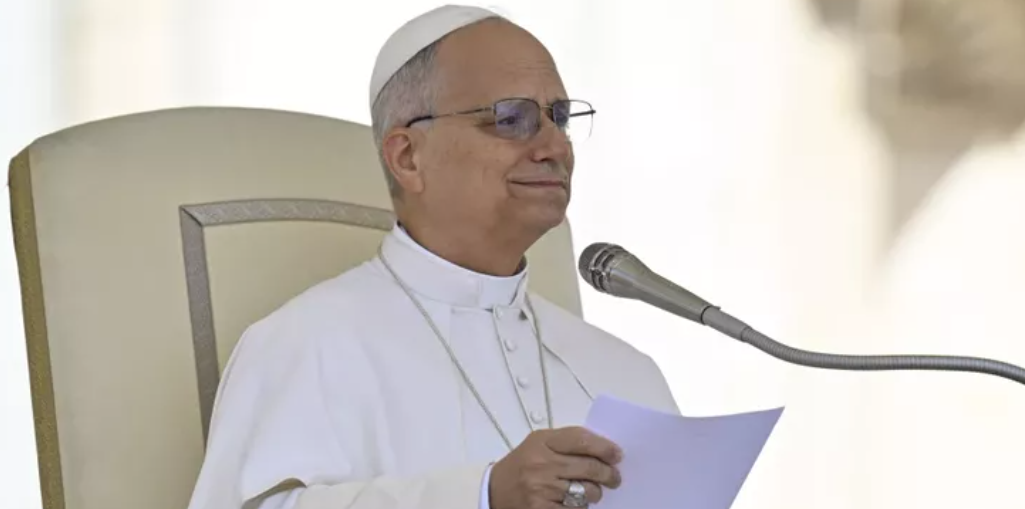Pope Leo XIV on Wednesday pleaded for international assistance for Sudan, citing the country’s worsening humanitarian crisis marked by violence, famine, natural disasters and disease.
“I am closer than ever to the Sudanese population, in particular families, children and the displaced,” Leo said at the end of his weekly general audience at the Vatican on Sept. 3.
“I pray for all the victims,” he added. “I make a heartfelt appeal to leaders and to the international community to guarantee humanitarian corridors and implement a coordinated response to stop this humanitarian catastrophe.”
Sudan has faced months of armed clashes, mass displacement and growing health threats, including cholera. Humanitarian organizations have issued repeated warnings over the deteriorating situation.
In his appeal, the pope highlighted the plight of civilians trapped in the city of El Fasher, where many are suffering from famine and violence. He also referenced a deadly landslide in Tarsin, believed to have killed up to 1,000 people, with others still missing.
“And, as if that were not enough,” the pope said, “the spread of cholera is threatening hundreds of thousands of already stricken people.”
“It is time to initiate a serious, sincere and inclusive dialogue between the parties to end the conflict and restore hope, dignity and peace to the people of Sudan,” he said.
The pope’s remarks came as he returned to holding his public audience in St. Peter’s Square after a three-week pause due to Rome’s extreme August heat.
In his spiritual reflection during the audience, Pope Leo focused on Jesus’ final moments on the cross, as described in the Gospel of John, where Christ says: “I thirst.”
He said this expression was not only a physical cry of suffering, but “above all, the expression of a profound desire for love, relationship and communion.”
His cry, the pope said, is that of a God “who is not ashamed to beg for a sip, because in that gesture he tells us that love, in order to be true, must also learn to ask and not only to give.”
“Jesus does not save with a dramatic twist,” he continued, “but by asking for something that he cannot give himself.”
According to Pope Leo, this reveals a deeper message of hope: “If even the Son of God chose not to be self-sufficient, then our thirst too — for love, for meaning, for justice — is a sign not of failure, but of truth.”
“Jesus’ thirst on the cross is therefore ours too,” he said. “It is the cry of a wounded humanity that seeks living water. And this thirst does not lead us away from God, but rather unites us with him. If we have the courage to acknowledge it, we can discover that even our fragility is a bridge towards heaven.”
The pope emphasized that on the cross, Jesus teaches that human beings are not fulfilled “in power, but in trustful openness to others, even when they are hostile and enemies.”
He said salvation is found “not in autonomy, but in humbly recognizing one’s own need and in being able to express it freely.”
“None of us can be self-sufficient. No one can save themselves. Life is ‘fulfilled’ not when we are strong, but when we learn how to receive,” he said.
“We live in a time that rewards self-sufficiency, efficiency, performance,” the pope continued. “And yet the Gospel shows us that the measure of our humanity is not given by what we can achieve, but by our ability to let ourselves be loved and, when necessary, even helped.”
He called on the faithful to rediscover the “simple joy” that comes from fraternity and the free gift of self. In daily actions — such as “asking without shame” and “offering without ulterior motives” — he said people can find a joy distinct from worldly success.
“It is a joy that restores us to the original truth of our being: we are creatures made to give and receive love,” he said.
Pope Leo concluded by encouraging listeners not to be afraid or ashamed to reach out for help, even when they feel unworthy. “It is right there, in that humble gesture, that salvation hides,” he said.




